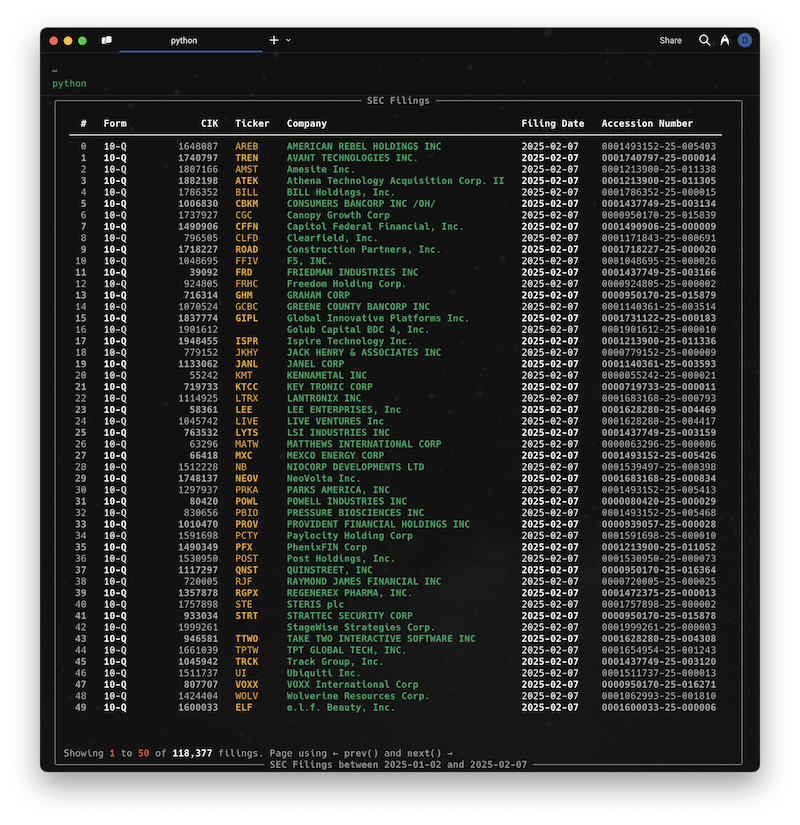Initial Steps
Getting Filings
The library is designed to be easy to use and flexible. You can start by getting all filings for the current year and quarter with get_filings().
filings = get_filings()

You can expand beyond the current year and quarter by using the parameters of the get_filings function.
For example you can specify the year you want to get filings for:
filings = get_filings(year=2021)
For more details on filtering filings see the Filtering Filings docs
Selecting a filing
You can select a filing using the [] operator. For example to get the third filing in the list:
filing = filings[3]
Paginating filings
The Filings object is a container for a list of filings. The list of filings can be large but by default you can only see the first page of filings.
To change the page, you can paginate filings using the next and prev methods. For example:
filings = get_filings()
filings.next()
filings.previous()
Looping through filings
You can loop through filings using the for loop. For example:
filings = get_filings()
for filing in filings:
# Do something with the filing
Getting Related Filings
Filings can be related to other filings using the file number. In some cases this relationship can be meaningful, as in they represent a group of filings for a specific securities offering.
The link between the filing is via the file_number attribute of the filing, which is an identifier that the SEC uses to group filings.
You can get related filings using the get_related_filings method. For example:
filing = get_filing('0000320193-22-000002')
filings = filing.related_filings()
Getting a Company
You can start by getting a company by CIK or Ticker with Company(). For example:
c = Company("AAPL")
You can also get a company by CIK. For example:
c = Company("0000320193")
To get a Company by ticker, the library first does a lookup of the CIK for the ticker and then gets filings for the CIK. So if you know the CIK, it is faster to use that directly.
Company Filings
You can get the filings for a company by using the get_filings() function. For example:
filings = c.get_filings()
Getting Company Facts
You can get facts for a company using the get_facts() method. For example:
facts = c.get_facts()
The result is an EntityFacts object that wraps the data returned from the SEC API. To get the data as a dataframe
use the to_pandas() method. For example:
facts_df = facts.to_pandas()
Getting Company Financials
You can get financials for a company using the get_financials function. For example:
financials = c.get_financials()
financials.income_statement()
Viewing unpublished filings
The SEC publishes the filing indexes week nights by 10:30 PM EST. To get the latest filings not yet in the index use the get_latest_filings function. For example:
filings = get_latest_filings()